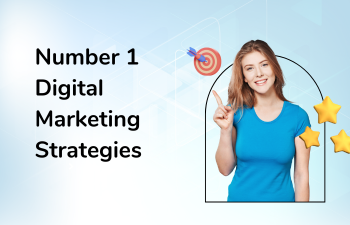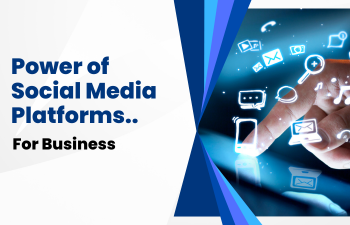 Digital Marketing
Digital Marketing
Number 1 Digital Marketing Strategies to implement in a…
Mastering Key Digital Marketing Strategies in a Digital Marketing Agency
In today’s digitally connected world, digital marketing is critical for firms’ success. It entails a variety of tactics for engaging with target audiences via digital channels like as search engines, social media, email, and websites. These tactics are intended to raise brand awareness, attract website traffic, generate leads, and boost sales and revenue. Businesses can use technology and data to give individualized and targeted messaging to their customers. To remain competitive, Digital Marketing Agencies must keep up with the latest trends and innovations. Successful digital marketing methods contribute to building a strong online presence, cultivating consumer relationships, and achieving long-term success in the digital economy. Some of the most effective Digital marketing strategies are:
Digital Marketing Strategies:
Search engine optimization (SEO):
SEO is critical for increasing your website’s visibility and ranking on search engine results pages (SERPs). By improving your website’s content, Meta tags, and backlink profile, you may enhance organic traffic and your online presence.

Content Marketing:
Digital marketing relies heavily on content. Creating high-quality, relevant content that appeals to your target audience can help your business establish itself as an industry authority. Whether its blog articles, videos, info graphics, or eBooks, interesting content increases engagement and trust among potential buyers.
Social Media Marketing:
Social media platforms offer an excellent opportunity to connect with your target audience, develop relationships, and promote your company. You may increase your reach and traffic to your website by providing compelling content, interacting with followers, and implementing targeted advertising campaigns. By doing so we can increase the target audience and can thereby convert to leads.
Email Marketing:
Email marketing remains one of the most successful methods for nurturing leads and converting them into customers. Sending tailored, relevant emails to your subscribers can help you keep them engaged, market your products or services, and increase sales.

Pay-Per-Click (PPC) advertisements:
PPC advertising allows you to reach out to your ideal audience by targeting certain keywords and demographics. PPC campaigns, whether run on Google Ads, Facebook Ads, or other platforms, can produce instant results while also increasing brand visibility.
Influencer Marketing:
Collaboration with influencers in your field can help you reach a larger audience and establish credibility with potential customers. Collaborating with influencers that share your brand values allows you to harness their reach and authority to boost engagement and conversions.
Video marketing:
Video content is becoming increasingly popular across all digital platforms. Whether its product demos, tutorials, or behind-the-scenes footage, including video into your marketing approach may fascinate and engage your target audience.
Website optimization:
Customers frequently form their initial impressions of your brand after visiting your website. To provide a great user experience and drive conversions, make sure it is user-friendly, mobile-responsive, and speed-optimized. The more website speed the more will be the possibility of getting leads. This is the most important strategies to be followed in a digital marketing agency.
Conclusion:
To succeed in today’s competitive digital landscape, Digital Marketing Agencies must implement certain digital marketing strategies. These include SEO, content marketing, social media marketing, email marketing, pay-per-click advertising, and influencer marketing. These techniques raise brand awareness, drive website traffic, generate leads, and enhance sales and profits. They also use technology and data to provide targeted messaging, improve the consumer experience, and foster long-term partnerships. To stay ahead of the curve in the evolving digital landscape, businesses must remain agile and adaptable. Businesses that understand and use these tactics effectively can open up new opportunities, produce substantial outcomes, and position themselves for long-term success.
Which digital marketing approach has been the most effective for your company? Please share your experiences and views in the comments section below.





